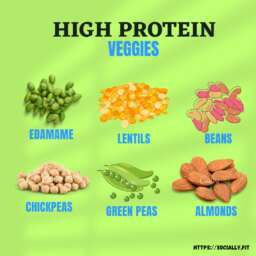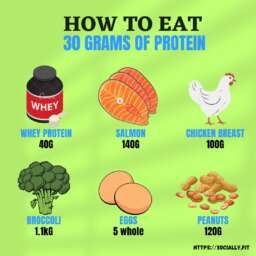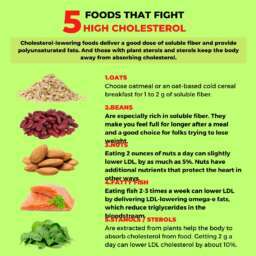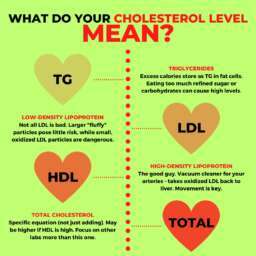Dry Fruits for Weight Loss. Discover how dry fruits can aid in weight loss with their rich nutritional profile. Learn the benefits, tips for incorporation, and essential facts about these delicious snacks.
Introduction
In recent years, health enthusiasts have increasingly turned to dry fruits as a snack option. However, many people wonder if these nutrient-dense foods can truly aid in weight loss. This article explores the relationship between dry fruits and weight loss, guiding you through various types of dry fruits and their benefits. Furthermore, you will discover practical ways to incorporate dry fruits into your diet effectively.
Dry Fruits for Weight Loss
Understanding Dry Fruits

What Are Dry Fruits?
Dry fruits, or dried fruits, are fruits that have had most of their water content removed through drying processes. Consequently, this results in a concentrated source of nutrients, sugars, and flavors. Common examples include raisins, apricots, figs, and dates. While they offer numerous health benefits, it’s essential to consume them mindfully.
Nutritional Profile of Dry Fruits
Dry fruits, often referred to as dried fruits, are fruits that have undergone a dehydration process, resulting in a nutrient-rich food that is both flavorful and portable. Their concentrated nature means they offer a wealth of vitamins, minerals, and antioxidants while being lower in water content. For instance, they are typically high in dietary fiber, which can help regulate digestion and promote a feeling of fullness, making them a popular choice for those aiming to lose weight. Furthermore, many dry fruits are rich in healthy fats, particularly nuts, which can provide essential fatty acids that support heart health. They also tend to be packed with natural sugars, which can satisfy sweet cravings without resorting to processed snacks. Overall, the nutritional profile of dry fruits presents a versatile option for enhancing your diet while working towards weight loss goals.
Dry Fruits for Weight Loss
Tips for Incorporating Dry Fruits into Your Diet
- Portion Control: Limit your portions to a small handful to manage calorie intake effectively.
- Mix with Nuts: Create a healthy trail mix by combining dry fruits with nuts for a satisfying snack.
- Add to Breakfast: Incorporate chopped dry fruits into oatmeal or yogurt for added sweetness and nutrition.
- Salad Enhancer: Toss dried fruits like cranberries or apricots into salads for a burst of flavor and texture.
- Energy Balls: Make energy balls using dates, nuts, and seeds for a quick and nutritious snack.
- Smoothie Boost: Blend dry fruits into your smoothies for a natural sweetness and thicker consistency.
- Baking Ingredient: Use dry fruits in baking, such as muffins or bread, to enhance flavor and nutrition.
- Healthy Desserts: Use dried fruits as a topping for desserts like ice cream or pudding for a healthier alternative.
- Snack on-the-go: Keep a small bag of mixed dry fruits in your bag for a convenient and healthy on-the-go snack.
- Mindful Eating: Practice mindful eating by savoring each piece of dry fruit, enhancing your enjoyment and satisfaction.
By understanding the nutritional benefits and incorporating these tips, you can effectively utilize dry fruits in your weight loss journey.
Dry Fruits for Weight Loss
The Link Between Dry Fruits and Weight Loss

How Dry Fruits Aid in Weight Loss
Firstly, dry fruits can promote weight loss due to their high fiber content. Fiber increases feelings of fullness, making you less likely to overeat. Secondly, the healthy fats found in nuts provide a satisfying crunch, which may curb your cravings for unhealthy snacks. Therefore, incorporating dry fruits into your daily routine can be a smart strategy for weight management.
Portion Control and Moderation
However, moderation is critical. Although dry fruits are nutritious, they are also high in calories. Consequently, it is vital to monitor your portion sizes to avoid consuming excess calories. A handful of mixed dry fruits can serve as a healthy snack without overindulging.
Dry Fruits for Weight Loss
Popular Dry Fruits for Weight Loss
Here are 25 popular dry fruits that can aid in weight loss, each offering unique nutritional benefits:

Almonds: Rich in healthy fats, protein, and fiber, almonds help keep you full and satisfied.

Walnuts: Packed with omega-3 fatty acids, walnuts support heart health and can help reduce inflammation.

Cashews: These nuts are a good source of magnesium and healthy fats, making them a nutritious snack option.

Pistachios: Low in calories and high in protein, pistachios can help curb hunger while providing essential nutrients.

Hazelnuts: Rich in vitamins and minerals, hazelnuts also contain healthy fats that can promote satiety.

Brazil Nuts: High in selenium, Brazil nuts can boost metabolism and support thyroid function.

Dried Apricots: These are low in calories and high in fiber, making them a great choice for weight management.

Raisins: Naturally sweet and packed with antioxidants, raisins can satisfy sugar cravings without added sugars.

Dried Figs: Figs are high in fiber and can help regulate digestion, making them a beneficial addition to your diet.

Dates: While higher in calories, dates provide natural sweetness and are rich in fiber, which can help with satiety.

Dried Cranberries: These are often sweetened but can be a tasty addition to salads and snacks when consumed in moderation.

Dried Prunes: Known for their digestive benefits, prunes are high in fiber and can help maintain gut health.

Dried Mango: While higher in sugar, dried mango can be a delicious treat that provides vitamins A and C.

Dried Pineapple: This tropical fruit is rich in bromelain, which may aid digestion and reduce inflammation.

Dried Cherries: High in antioxidants, dried cherries can help reduce inflammation and support overall health.

Dried Blueberries: These are nutrient-dense and can provide a concentrated source of antioxidants.

Dried Apples: Low in calories and high in fiber, dried apples can be a crunchy snack option.

Dried Peaches: These are rich in vitamins and can add a sweet flavor to various dishes.

Dried Pears: Pears are high in fiber and can help keep you feeling full longer.

Dried Goji Berries: Known for their antioxidant properties, goji berries can support immune health.

Dried Mulberries: These are rich in iron and vitamin C, making them a nutritious addition to your diet.

Dried Kiwi: High in vitamin C and fiber, dried kiwi can help boost your immune system.

Dried Coconut: Unsweetened dried coconut provides healthy fats and can be a satisfying snack.

Dried Acai Berries: These are rich in antioxidants and can support overall health and wellness.

Dried Elderberries: Known for their immune-boosting properties, dried elderberries can be a beneficial addition to your diet.
Incorporating these dry fruits into your meals and snacks can help you enjoy their health benefits while supporting your weight loss goals.
Dry Fruits for Weight Loss
Incorporating Dry Fruits into Your Diet
- Breakfast Boost: Start your day by adding dried fruits like chopped apricots or raisins to your oatmeal or yogurt for a nutritious morning meal.
- Healthy Trail Mix: Combine a variety of dry fruits with nuts and seeds to create a healthy trail mix, perfect for snacking on the go.
- Flavorful Salads: Enhance the taste and texture of your salads by sprinkling in dried cranberries or figs, adding sweetness and nutrition.
- Baking Delight: Use dried fruits like dates, cherries, or raisins in muffins, bread, or energy bars to provide natural sweetness and added fiber.
- Smoothie Enhancements: Blend dried fruits such as goji berries or dried bananas into your smoothies for an extra nutritional punch and delicious flavor.
- Dessert Toppings: Top your favorite desserts, like ice cream or chia pudding, with dried fruits to add natural sweetness without excess sugar.
- Savory Dishes: Incorporate dried fruits into savory dishes, such as tagines or grain salads, for a unique flavor combination and added nutrients.
- Nut Butter Combinations: Spread nut butter on whole-grain toast and top it with dried fruit slices, creating a satisfying and nutritious snack.
- Homemade Granola: Make your own granola by mixing oats, nuts, and dried fruits, ensuring a healthy breakfast or snack option.
- On-the-Go Packs: Prepare small bags of mixed dry fruits for convenient on-the-go snacks that provide energy and curb hunger.
Dry Fruits for Weight Loss
Potential Downsides of Dry Fruits

- High-Calorie Density: Dry fruits are calorie-dense due to their concentrated sugars. Overeating them can lead to unintended weight gain, making portion control essential.
- Sugar Content: Many dried fruits contain added sugars, which can counteract their health benefits. Always check labels and opt for unsweetened varieties whenever possible.
- Digestive Issues: The high fiber content in dry fruits can cause gastrointestinal discomfort, such as bloating or gas, especially when consumed in large quantities.
- Allergies and Sensitivities: Some individuals may have allergies or sensitivities to nuts or specific dried fruits, necessitating caution when incorporating them into the diet.
- Loss of Nutrients: The drying process can lead to a reduction in certain vitamins, particularly vitamin C, which may be more abundant in fresh fruits.
- Potential Additives: Some commercially available dry fruits may contain preservatives or sulfites, which can cause allergic reactions in some individuals.
- Overeating Risks: Their small size makes it easy to mindlessly snack on dry fruits, leading to excessive calorie intake without realizing it.
- Dental Issues: Sticky dried fruits can adhere to teeth and contribute to dental problems if proper oral hygiene is not maintained.
- Not a Complete Substitute: While dry fruits are nutritious, they should not completely replace fresh fruits in your diet, as fresh fruits provide hydration and additional nutrients.
- Cost Considerations: Dried fruits can be more expensive than fresh fruits, which can be a factor for those on a budget.
Dry Fruits for Weight Loss
Calorie Comparison: Almonds vs. Walnuts
| Dry Fruit | Calories per 1 oz (28g) | Healthy Fats (g) | Protein (g) | Fiber (g) | Weight Loss Benefits |
|---|---|---|---|---|---|
| Almonds | 164 | 14 | 6 | 3.5 | High in protein and fiber, promoting satiety. |
| Walnuts | 185 | 18 | 4 | 2 | Rich in omega-3s, supporting heart health. |
| Almonds | 164 | 14 | 6 | 3.5 | Lower in calories, making them a lighter snack. |
| Walnuts | 185 | 18 | 4 | 2 | Higher calorie content, which may require portion control. |
| Almonds | 164 | 14 | 6 | 3.5 | Excellent for snacking without excessive calories. |
| Walnuts | 185 | 18 | 4 | 2 | Provides healthy fats that can enhance meal satisfaction. |
| Almonds | 164 | 14 | 6 | 3.5 | Versatile in recipes, adding nutrition without many calories. |
| Walnuts | 185 | 18 | 4 | 2 | Great for adding flavor and health benefits to dishes. |
| Almonds | 164 | 14 | 6 | 3.5 | Ideal for weight loss due to lower calorie density. |
| Walnuts | 185 | 18 | 4 | 2 | Beneficial for overall health, but mindful of portions is essential. |
Analysis
When comparing almonds and walnuts, almonds generally offer a lower calorie count, making them a favorable option for weight loss. Additionally, their higher protein and fiber content can promote feelings of fullness, which is crucial for managing hunger. On the other hand, walnuts provide a rich source of omega-3 fatty acids, which are beneficial for heart health. Therefore, while both nuts have their advantages, choosing almonds may be more effective for those focused on weight loss due to their lower calorie density and higher fiber content.
Moreover, incorporating a variety of both nuts into your diet can provide a balanced intake of nutrients. For instance, using almonds as a snack while adding walnuts to salads can enhance both flavor and health benefits. Ultimately, moderation remains key, as both nuts can contribute to overall health when consumed mindfully.
Dry Fruits for Weight Loss
Fiber Comparison: Dried Apricots vs. Dried Figs
| Dried Fruit | Fiber per 1 oz (28g) | Calories per 1 oz | Sugar (g) | Weight Loss Benefits | Satiety Level |
|---|---|---|---|---|---|
| Dried Apricots | 3.1 | 84 | 9 | High fiber aids digestion and fullness. | Moderate |
| Dried Figs | 3.7 | 74 | 8 | Rich in fiber, promoting satiety effectively. | High |
| Dried Apricots | 3.1 | 84 | 9 | Lower in calories, making them a lighter option. | Moderate |
| Dried Figs | 3.7 | 74 | 8 | Provides natural sweetness with fiber benefits. | High |
| Dried Apricots | 3.1 | 84 | 9 | Versatile in recipes, adding fiber without many calories. | Moderate |
| Dried Figs | 3.7 | 74 | 8 | Great for snacking while promoting fullness. | High |
| Dried Apricots | 3.1 | 84 | 9 | Ideal for weight loss due to lower calorie density. | Moderate |
| Dried Figs | 3.7 | 74 | 8 | Excellent for digestive health and satiety. | High |
| Dried Apricots | 3.1 | 84 | 9 | Good for adding to meals for extra fiber. | Moderate |
| Dried Figs | 3.7 | 74 | 8 | Beneficial for overall health, enhancing fullness. | High |
Analysis
When examining the fiber content of dried apricots and dried figs, dried figs emerge as the superior choice, offering slightly more fiber per ounce. This increased fiber content can significantly enhance feelings of fullness, making figs particularly effective for promoting satiety. Additionally, both dried fruits are relatively low in calories, but figs have a slight edge in this regard, making them a great option for weight management.
Incorporating both dried apricots and figs into your diet can provide a variety of flavors and textures while maximizing fiber intake. For instance, adding dried figs to smoothies or salads can boost fiber content and enhance overall nutrition. Ultimately, focusing on fiber-rich foods like these can support digestive health and help manage hunger effectively.
Dry Fruits for Weight Loss
Antioxidant Comparison: Raisins vs. Dried Cranberries
| Dried Fruit | Antioxidant Level | Calories per 1 oz (28g) | Sugar (g) | Weight Management Benefits | Health Benefits |
|---|---|---|---|---|---|
| Raisins | Moderate | 85 | 21 | Natural sweetness can curb cravings. | Good source of iron. |
| Dried Cranberries | High | 123 | 29 | Rich in antioxidants, supporting overall health. | May improve urinary health. |
| Raisins | Moderate | 85 | 21 | Lower in calories, making them a lighter snack. | Provides quick energy. |
| Dried Cranberries | High | 123 | 29 | Higher sugar content, requiring portion control. | Rich in vitamin C. |
| Raisins | Moderate | 85 | 21 | Versatile in recipes, adding sweetness without excess calories. | Supports digestive health. |
| Dried Cranberries | High | 123 | 29 | Excellent for snacking but mindful of sugar intake. | Antioxidants may reduce inflammation. |
| Raisins | Moderate | 85 | 21 | Ideal for weight loss due to lower calorie density. | Good for heart health. |
| Dried Cranberries | High | 123 | 29 | Beneficial for overall health, but portion control is essential. | May help prevent UTIs. |
| Raisins | Moderate | 85 | 21 | Good for adding to meals for extra sweetness. | Provides energy for workouts. |
| Dried Cranberries | High | 123 | 29 | Higher antioxidant levels, supporting health. | May improve skin health. |
Analysis
In comparing raisins and dried cranberries, dried cranberries stand out due to their higher antioxidant levels, which can significantly benefit overall health. However, they also come with a higher calorie and sugar content, making portion control essential for those focused on weight management. Raisins, while lower in calories, still provide a moderate level of antioxidants and can satisfy sweet cravings effectively.
Incorporating both dried fruits into your diet can enhance your antioxidant intake while providing a variety of flavors. For example, using raisins in baked goods and adding dried cranberries to salads can create delicious and nutritious meals. Ultimately, balancing these dried fruits in moderation can support your health goals while satisfying your taste buds.
Dry Fruits for Weight Loss
Conclusion: Dry Fruits for Weight Loss
Incorporating dry fruits into your diet can be a delightful way to enhance the nutritional value of your meals and snacks. They offer a plethora of health benefits, including providing essential vitamins, minerals, and fiber that can aid in weight loss and overall well-being. By creatively integrating dry fruits into various meals, such as breakfast, salads, and snacks, you can enjoy their natural sweetness and versatility. However, it is crucial to be mindful of portion sizes and opt for unsweetened varieties to fully reap their benefits without excess calorie consumption.
On the other hand, the potential downsides of dry fruits should not be overlooked. Being aware of their high caloric density, possible additives, and digestive impacts is essential for maintaining a balanced diet. Moderation is key, as is ensuring a diverse intake of fresh fruits to complement the benefits of dry fruits. By understanding both the advantages and disadvantages, you can make informed choices that align with your health goals, allowing you to enjoy dry fruits as part of a wholesome and nutritious diet.
Dry Fruits for Weight Loss
FAQs: Dry Fruits for Weight Loss
1. Are dry fruits healthier than fresh fruits? Dry fruits are nutrient-dense, but they are also higher in calories. Balance is key.
2. How many dry fruits should I eat daily? A small handful (about 1 ounce) is a recommended portion for most people.
3. Can dry fruits help with weight gain? Yes, dry fruits can contribute to weight gain if consumed in excess due to their high-calorie content.
4. Are there any side effects of eating dry fruits? Potential side effects include allergies, digestive discomfort, and weight gain if overconsumed.
5. Can I eat dry fruits at night? Yes, dry fruits can be a healthy nighttime snack; just be mindful of portion sizes.
Click here to know more about weight loss. Subscribe to Workout with Hunar for weight loss and workout videos.
Dry Fruits for Weight Loss















One thought on “Dry Fruits for Weight Loss”